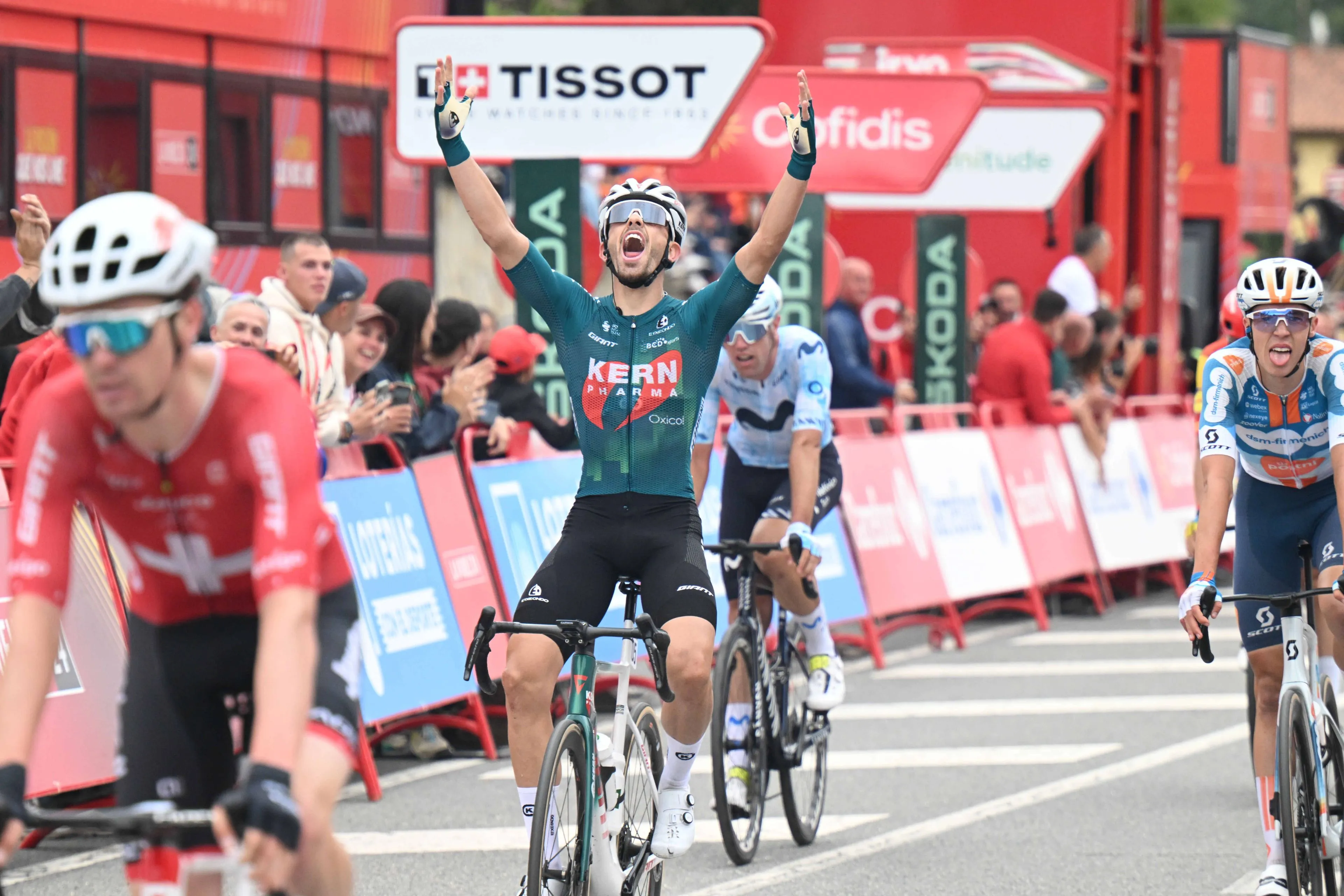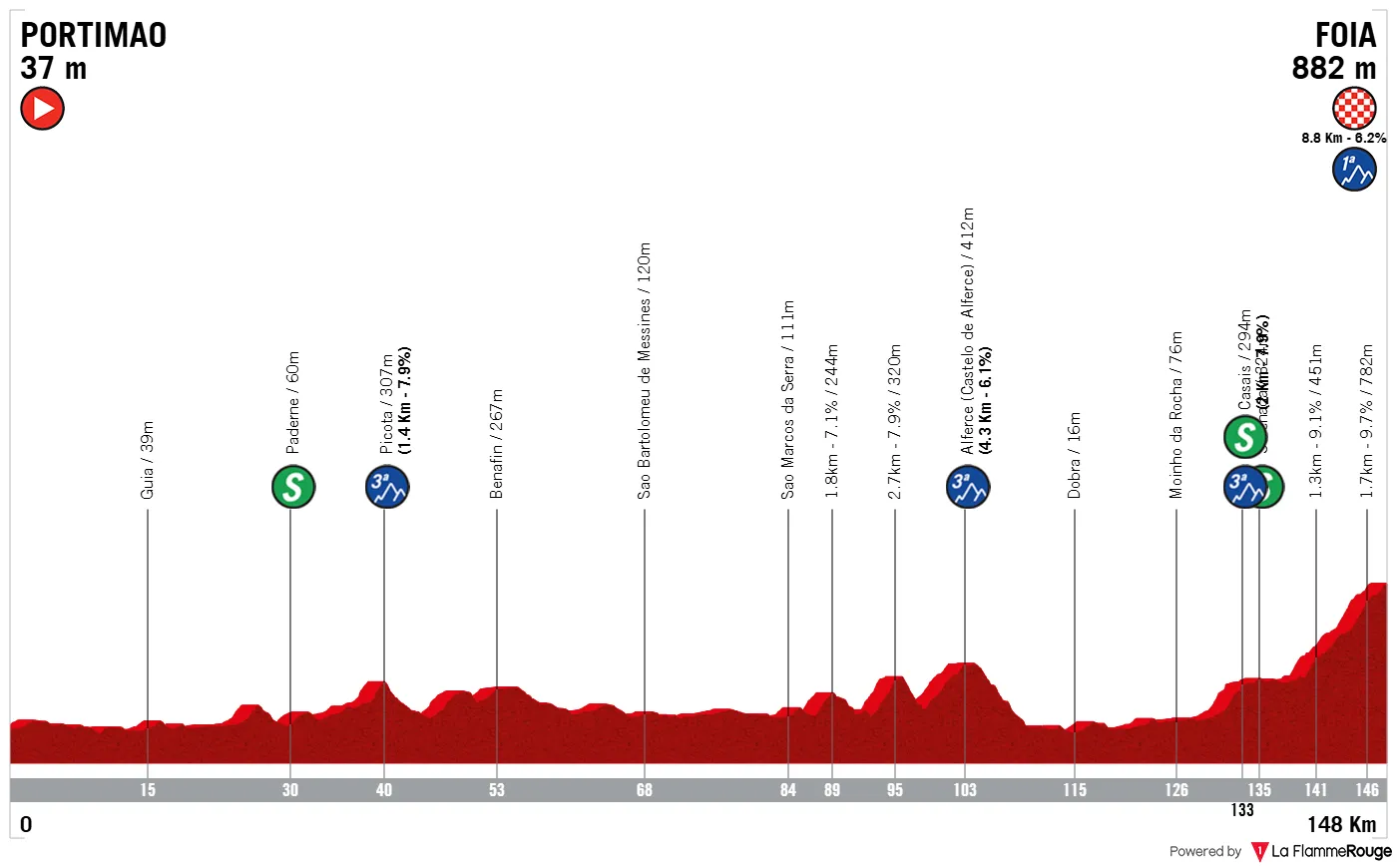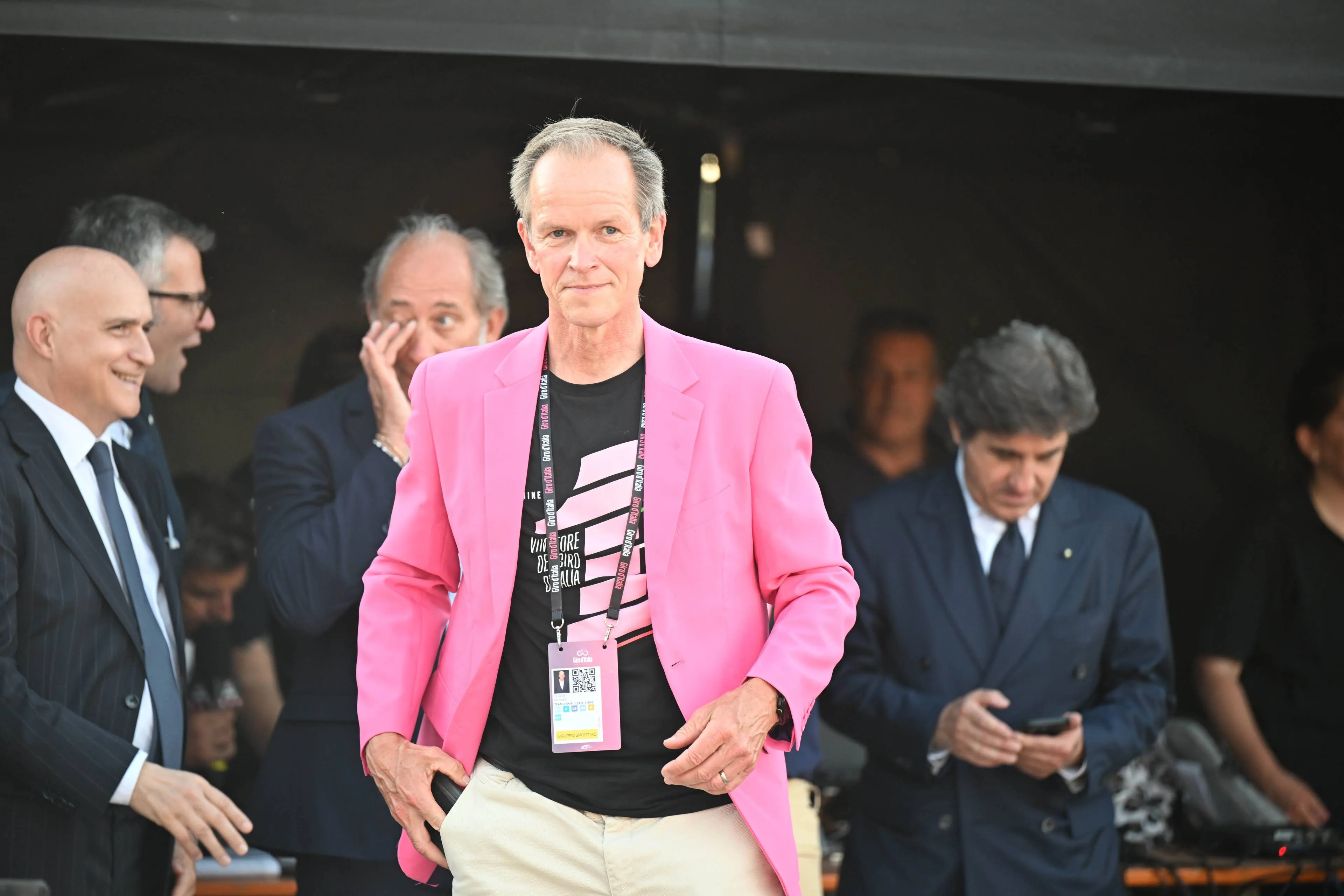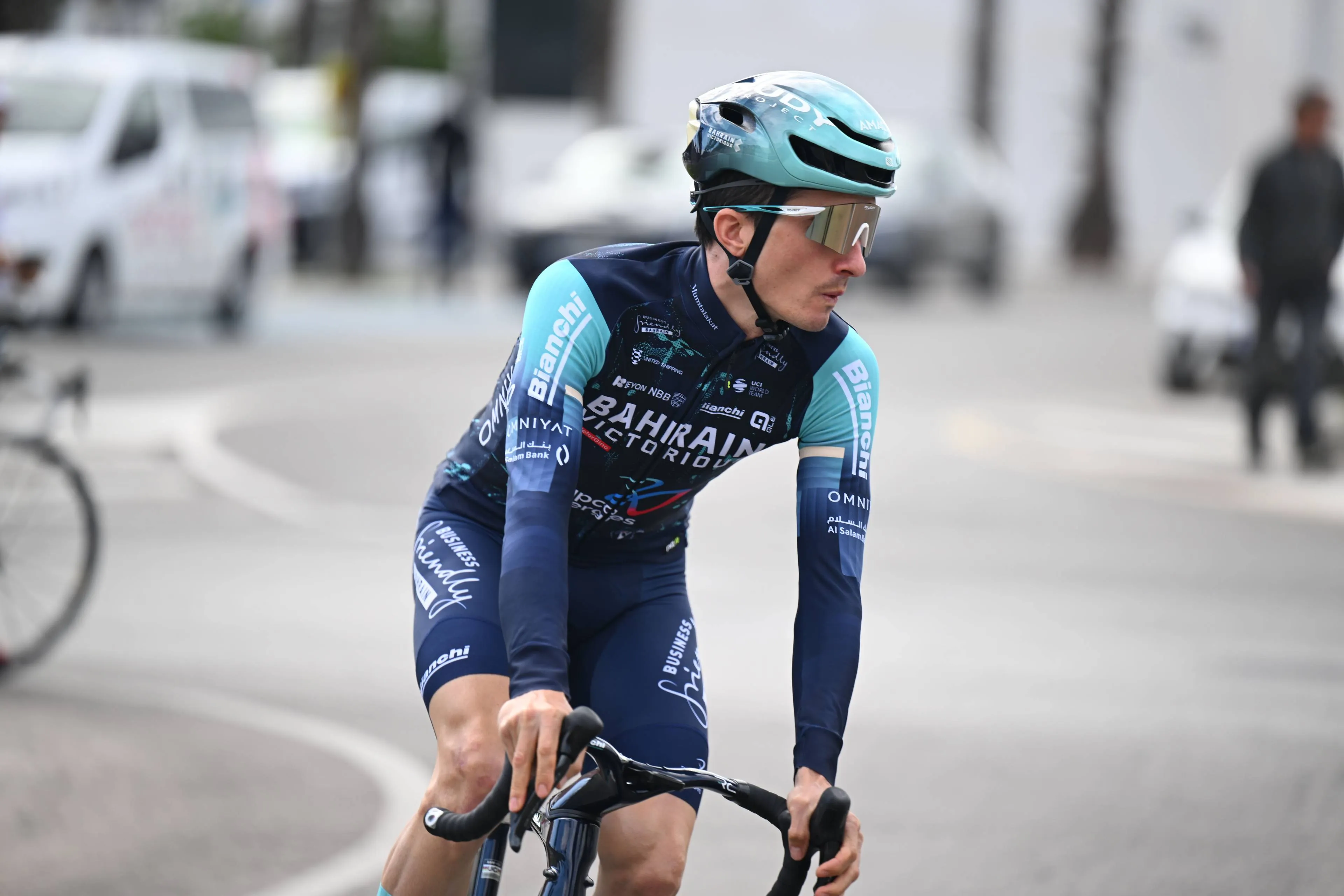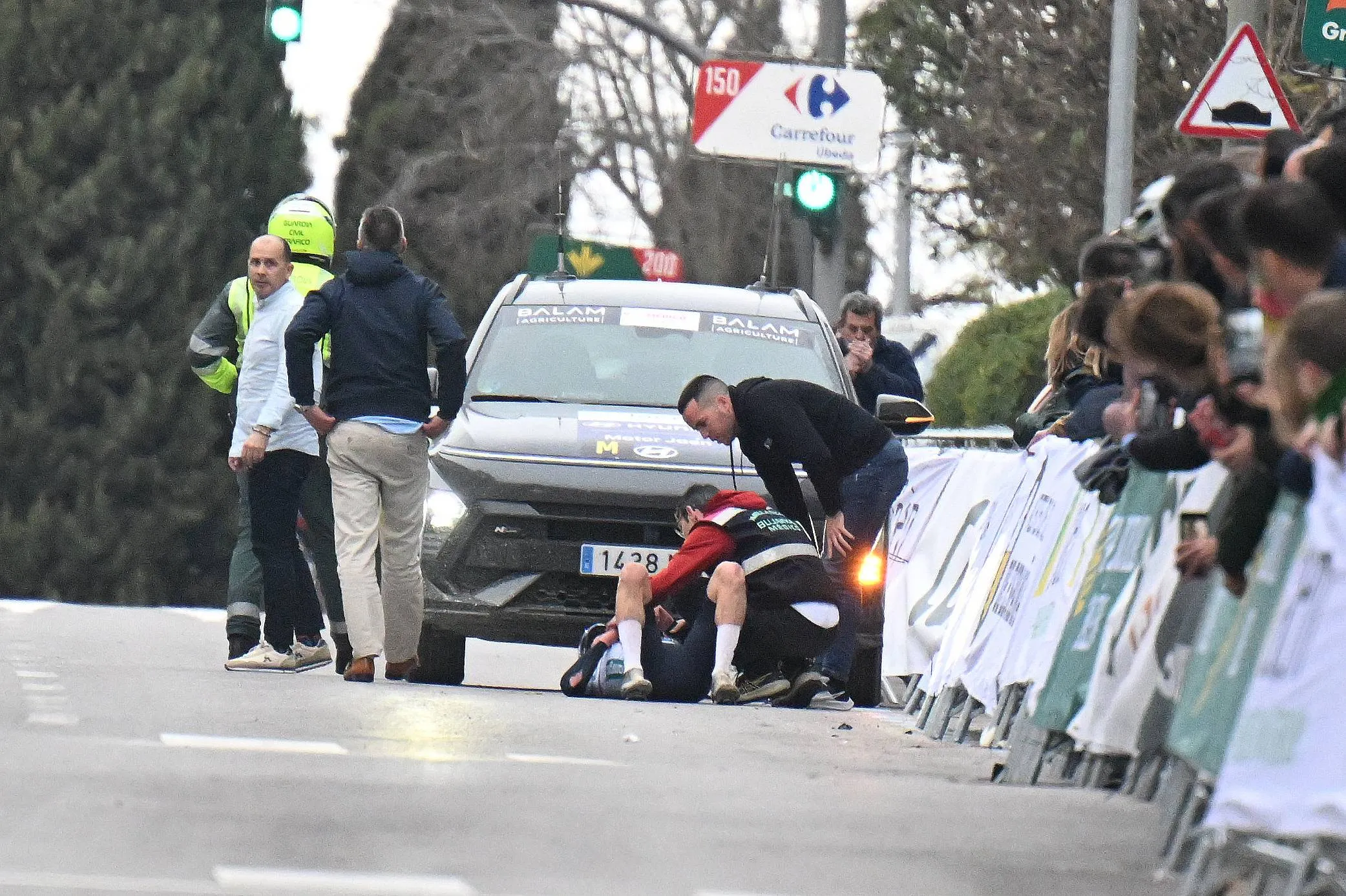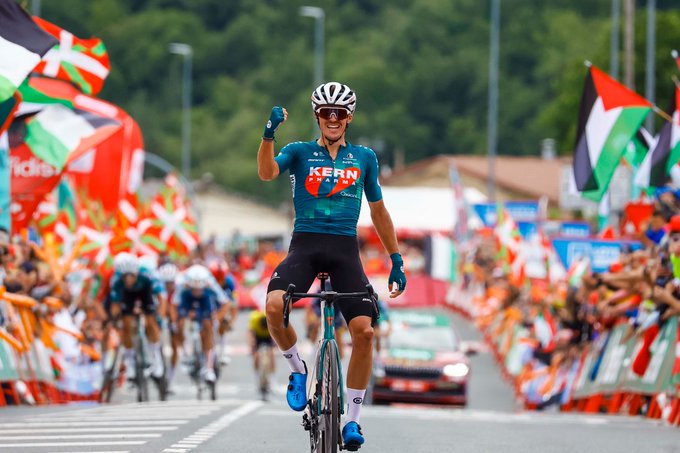OPINION: Has the Vuelta been more exciting without Tadej Pogacar and Jonas Vingegaard?
CyclingSaturday, 07 September 2024 at 10:57

The 2024 Vuelta a España has undoubtedly been one of the
most intriguing and unpredictable Grand Tours in recent memory. In a race often
dominated by pre-race favourites, this year has brought a refreshing change of
pace, challenging the conventional wisdom of what makes a race truly exciting.
The absence of Tadej Pogacar and Jonas Vingegaard, two of
the sport’s biggest stars, has left a significant void. But has it detracted
from the spectacle, or has it given us something even more thrilling?
The Pre-Vuelta Narrative
When Primož Roglič seized the red jersey after a dominant
performance on stage 4, many predicted that the race would become a procession
to Madrid, with the Slovenian superstar adding yet another Grand Tour to his
glittering palmarès. On paper, Roglič was the strongest rider in the peloton,
especially in the absence of Pogačar, Vingegaard, and Remco Evenepoel, who all
chose to skip this year’s Vuelta. Without these heavyweights, and barring a
Roglic crash, the narrative seemed set: Roglič would coast to victory,
unchallenged and unthreatened.
Read also
But cycling is a sport where the unexpected often reigns
supreme, and stage 5 turned the race on its head. Ben O’Connor, an immensely
talented rider but not one of the pre-race favourites, launched a bold attack
that earned him over five minutes and, with it, the red jersey. In a race with
Pogačar or Vingegaard, it’s hard to imagine such a move being allowed to
succeed. Their teams would have almost certainly shut it down, protecting their
leaders from losing crucial time. But with their absence, the race was wide
open, allowing O’Connor to seize his moment.
The Pogačar and Vingegaard Effect
It’s no exaggeration to say that the rivalry between Pogačar
and Vingegaard has been the defining narrative of the last three editions of
the Tour de France. Their head-to-head battles have already become legendary,
with each rider pushing the other to superhuman feats. Their rivalry has
brought a level of excitement and unpredictability to the sport that was sorely
needed. Pogačar, the prodigious talent who seemed poised to dominate for years
to come, met his match in Vingegaard, a quiet but relentless competitor who
emerged as the only rider capable of challenging the Slovenian’s supremacy.
Their duels have produced some of the most memorable moments
in recent cycling history. Whether it was Vingegaard’s stunning attack on Mont
Ventoux in 2021, where he distanced Pogačar and signalled the beginning of
their rivalry, or the back-and-forth exchanges in the mountains of the Pyrenees
and Alps in subsequent Tours, these two riders have elevated the sport to new
heights. It’s no wonder that many cycling fans were disappointed to see them absent
from this year’s Vuelta.
Without their explosive attacks and relentless pace-setting,
the 2024 Vuelta has lacked the kind of fireworks we’ve come to expect in the
Tour. Pogačar’s ability to launch devastating attacks that only Vingegaard can
follow is something that has become almost synonymous with modern Grand Tours.
Their absence has certainly left a void in that regard.
A Different Kind of Racing
But perhaps we’ve become too accustomed to the
Pogačar-Vingegaard spectacle. The 2024 Vuelta a España has shown us a different
side of Grand Tour racing, one that is no less compelling. The race has been
marked by tactical battles, strategic gambles, and a level of unpredictability
that has kept fans on the edge of their seats.
Roglič, despite being the pre-race favourite, has been
forced to race cunningly rather than simply overpowering his rivals. After the
bizarre tactics of Red Bull Bora-Hansgrohe on stage 5 left him with a
significant deficit to O’Connor, Roglič has methodically chipped away at the
Australian’s lead. His strategy has been one of patience and precision, never
overexerting himself but always staying within striking distance. Over the past
few stages, he’s clawed back over five minutes and is now just five seconds
behind O’Connor, with several mountain stages and a time trial still to come.
It’s a masterclass in intelligent racing, proving that Roglič is far from
finished as a Grand Tour contender.
And then there’s O’Connor, the underdog who has captured the
hearts of cycling fans around the world. His defence of the red jersey has been
nothing short of heroic. Time and again, he’s been distanced on the climbs,
only to fight back and limit the damage, refusing to relinquish his lead
without a fight. His performances have been a testament to grit, determination,
and the belief that anything is possible in Grand Tour racing. Regardless of
whether he holds on to the red jersey until Madrid, O’Connor has been the
standout performer of this Vuelta, proving that you don’t need to be a pre-race
favourite to shine on the biggest stage.
The absence of Pogačar and Vingegaard has also allowed other
riders to step into the spotlight. Richard Carapaz, Enric Mas, and Mikel Landa
(before his unfortunate time loss on yesterday’s stage) have all shown that
they are still among the best in the world, each producing brilliant
performances that have kept the race wide open. Without the shadow of Pogačar
and Vingegaard looming large, these riders have had the freedom to race for
victory, rather than simply fighting for the best of the rest.
The Purity of Competition
For pure cycling fans, this Vuelta has been a reminder of
what makes the sport so special. While Pogačar and Vingegaard’s rivalry is
undoubtedly the biggest draw in the sport right now, their absence has allowed
the race to develop a different kind of narrative, one that is no less
engaging.
This year’s Vuelta has had it all: an underdog in the lead,
a three-time champion chasing him down, and a host of other riders still in
with a genuine shot at the podium as the race enters its final stages. It’s
been a race of twists and turns, where nothing has been certain, and every
stage has brought new drama. In many ways, it’s been a purer form of
competition, where tactics, strategy, and sheer willpower have taken center
stage.
Of course, we all love to watch the best in the world go
head-to-head, and there’s no doubt that a Vuelta with Pogačar and Vingegaard
would have been a spectacle to behold. But in their absence, we’ve been treated
to something different, something that has reminded us why we fell in love with
this sport in the first place.
Conclusion
So, has the Vuelta been better off without Pogačar and
Vingegaard? The answer, in many ways, is subjective. If you crave the explosive
attacks and epic duels that have defined recent Tours de France, then perhaps
this Vuelta has felt like it’s missing something. But if you appreciate the
nuances of tactical racing, the thrill of the unexpected, and the joy of
watching new stars emerge, then this Vuelta has been every bit as exciting as
any race in recent memory.
In the end, cycling is a sport of endless possibilities,
where anything can happen and anyone can win. This year’s Vuelta a España has
been a celebration of that unpredictability, and for that, it’s been a race to
remember—Pogačar and Vingegaard or not.
claps 4visitors 4
Just in
Popular news
Latest comments
- Bahraini suspicious..Santiago19-02-2026
- The problem is, a British 'boss' opening the gates, when the native workers not wanting them!
 leedorney19-02-2026
leedorney19-02-2026 - Who is overrating him on climbs? Everyone knows since ages it’s his weakness and needed years of work. Question us if he can do enough about it. For sure he won’t be able to improve his TT enough to compensate.Mistermaumau19-02-2026
- What do you call only seeing someone’s positives?Mistermaumau19-02-2026
- Remco banging his leg, just like he banged his saddle when pog dropped him. He ain't fooling anyone with those antics. I'm not a hater, but he's a bit overrated on serious climbs.Santiago19-02-2026
- Obviously isn’t learning from the Epstein fallout. The more you unravel the past the more undiscovered mess appears.Mistermaumau19-02-2026
- I like Tadej a lot (a lot, a lot) but you're a little exxagerated... Allow me to give you some advice: Never become a fanatic for something or someone (neither pro nor against, haters are against-fanatics). And never idolize human beings.
 maria2024202419-02-2026
maria2024202419-02-2026 - What about them? What did they get away with in the end?Mistermaumau19-02-2026
- If I were Johan Bruyneel, I would be careful what I wish for... There is a high likelihood that revealing your side of the story will actually make things WORSE for you! Also, I suspect Lance will make himself look like the victim and throw you and everyone else under the bus!Pogboom19-02-2026
- As per a great many on the world stage...you must be beside yourself amongst them all!
 leedorney19-02-2026
leedorney19-02-2026
Loading
🏆 𝙃-𝙐𝙍𝙆-𝙐𝙇𝙀𝙎 💪 @Urkich 👊 #LaVuelta24 📸 @SprintCycling
7 Comments
